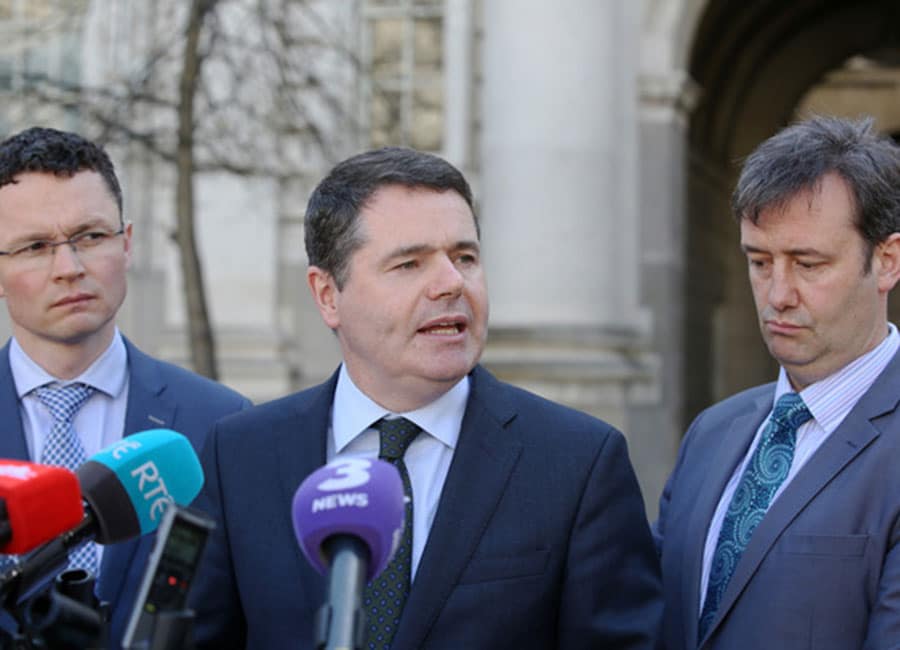The government has published legislation to more strictly regulate lobbying, with proposed fines of up to €25,000 and bans of two years for former politicians, civil servants and special advisors who enter into lobby before the end of a 12-month cooling-off period.
The prospective rules come after the then-Fine Gael-led government was criticised by the opposition following former junior minister Michael D'Arcy's decision to resign his Seanad seat to become CEO of the Irish Association of Investment managers lobby group in 2020.
The changes, brought forward by Minister for Public Expenditure Michael McGrath, were approved by the cabinet earlier this week, and the General Scheme of the Regulation of Lobbying (Amendment) Bill 2022 will be brought before the Dáil later this year.
The bill would extend the definition of lobbying to cover all business representatives bodies and coalitions of business interests, regardless of their number of employees, and make minor changes to the Lobbying Register to give bodies more flexibility around their listed addresses.
"It is my view that the critical drivers of trust are transparency, citizen participation and collaboration with stakeholders," McGrath said. "The Lobbying Register has from its inception as a policy proposal, proved to be an outstanding example of best practice in using these drivers to best advantage."
"The extent of lobbying activity is a good measure of engaged citizenry, but it should be open to public scrutiny as part of the desirable checks and balances in a democracy."
He added: "The legislative proposals detailed in the General Scheme will help to strengthen our regulation of lobbying regime even further and ensure it continues to deliver on the objectives we have set for it.”

Lobbyists have been required to register and report on their lobbying activities every four months on the Register of Lobbying since 2017. There are currently 2,300 organisations and individuals who have registered, and over 63,300 returns submitted since it was established.
Ged Nash, Labour's Public Expenditure & Reform spokesperson, said the contents of the bill were "virtually indistinguishable" from a bill introduced in the Dáil by the party last June, bar "some minor tweaks.
"We believe, it is in the public interest that the revolving door between former government ministers, special advisors and senior civil and public servants is better regulated and I am pleased that the government has adopted Labour’s proposals. Confidence in politics depends on it," Nash said.
Mairéad Farrell, Sinn Féin's spokesperson on Public Expenditure, said the party's own bill, which is stuck at the committee stage and awaiting a pre-legislative scrutiny report, calls for a longer, 24-month cooling-off period.
"Nobody is served by a revolving door between politics and big business. Minister McGrath and this government claim they love competition in the marketplace, and yet a revolving door situation is corrosive to competition," she said.
"It allows people to trade on their former insider influence to distort competition. You would think that this would be a concern for this government, but apparently not."
(Pic: Getty Images)








